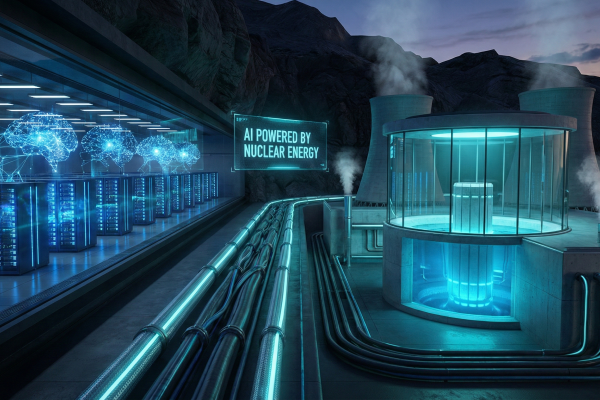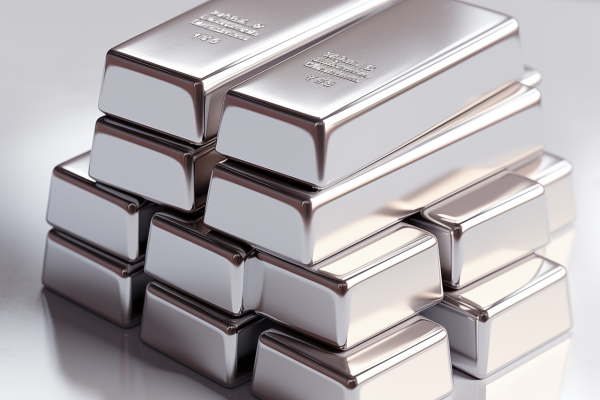August 12th, 2025 | 07:10 CEST
Lithium? Zinc! Steel! BYD's supply chains, Pasinex's deposits, thyssenkrupp's recycling: Your triple protection against trade wars
Trade conflicts are escalating! New US tariffs and stricter export controls on critical raw materials like lithium and rare earths are destabilizing global supply chains. Experts warn of rising prices and supply risks, especially for future-oriented technologies. Investors are therefore now seeking out resilient companies. Preference is given to those with vertically integrated supply chains, direct access to strategic mineral deposits, or revolutionary recycling technologies. Those who master the new reality of raw materials will win. Three players exemplify this transformation: BYD, Pasinex Resources, and thyssenkrupp.
time to read: 5 minutes
|
Author:
Armin Schulz
ISIN:
BYD CO. LTD H YC 1 | CNE100000296 , PASINEX RESOURCES LTD. | CA70260R1082 , THYSSENKRUPP AG O.N. | DE0007500001
Table of contents:

"[...] In 2020, the die is finally cast in the automotive industry towards electromobility. [...]" Dirk Harbecke, Executive Chairman, Rock Tech Lithium Inc.
Author
Armin Schulz
Born in Mönchengladbach, he studied business administration in the Netherlands. In the course of his studies he came into contact with the stock exchange for the first time. He has more than 25 years of experience in stock market business.
Tag cloud
Shares cloud
BYD – The silent giant of electromobility
BYD's vertical integration remains the key to its success. The Company controls the entire value chain – from its revolutionary "blade battery" and its own semiconductors to powertrains. This depth protects margins in the price war and enables agile product adaptations, as is currently evident. In July 2025, total sales of NEVs stagnated at a year-on-year increase of 0.6%, but this masks a strategic shift. While plug-in hybrids recorded a decline of 22.5%, pure electric vehicles (BEVs) boomed with a 36.8% increase compared to the previous year. BYD's integrated model allows resources to be quickly redirected to growing segments.
Internationally, BYD continues to expand. Despite a slight monthly dip in its home market, the Company exported 89,047 NEVs in May alone, an increase of 137% compared to the previous year. New factories in Thailand, Hungary, and Turkey are undermining trade barriers. In Europe, BYD is already pushing established brands out of customer segments. In countries such as France and the UK, BYD now outperforms Fiat and Seat. By 2030, half of its sales are expected to be generated outside China. The July figures are therefore likely to be just a snapshot in a long-term race to catch up.
BYD is proving its financial robustness. Revenue growth was 35% in the first quarter, with rising margins. The current weakness in PHEVs in July is being offset by strong BEV demand and export growth. The balance sheet remains solid with net cash of around USD 16 billion. The long-term trend is decisive. So far this year, sales have risen by 27.4% overall. The current valuation does not reflect this strength. The stock market is currently ignoring the structural growth path and the unique depth of integration. The share price has been in decline recently and currently stands at EUR 12.175.
Pasinex Resources - Expands zinc portfolio with strategic focus
Zinc remains indispensable, whether for galvanized steel in infrastructure projects or in growing battery markets. This is where Pasinex comes in with its portfolio of high-grade zinc projects. The focus is on Sarikaya in Turkey, where a new mineralization zone with approximately 30% zinc content was recently discovered only 300 meters from the existing adit. The planned acquisition by October 2025 is secured by an ongoing private placement. At the same time, the established Pinargozu mine, in which the Company holds a 50% interest, serves as a solid cash flow base, while Gunman in Nevada, a promising US project with drill results of up to 26% zinc, strategically complements the portfolio.
The Company focuses specifically on small deposits with exceptional ore grades of 30-50% zinc. These enable direct shipment without cost-intensive processing, which is a clear competitive advantage. The Company's deep operational experience in Turkey is paying off here. There are proven logistics chains, existing infrastructure, and over 200,000 tons of historically mined premium ore, underscoring the feasibility of the project. Sarikaya's new discovery in particular confirms the potential along known geological trend structures.
The current capital measure is expected to raise approximately CAD 2.15 million. The proceeds will enable Pasinex to secure the Sarikaya acquisition and accelerate exploration activities. Investors have already committed CAD 500,000 at the time of the announcement. A recent debt swap of CAD 2.16 million for shares also relieves the balance sheet. The quarterly deficit of USD 0.9 million was primarily due to special effects such as the consequences of hyperinflation in Turkey and temporary production interruptions at the Pinargozu mine, operated by joint venture partner Akmetal AS. Pasinex still holds outstanding claims of CAD 37.7 million, which are currently being pursued through legal proceedings. The share is currently trading at CAD 0.065.
thyssenkrupp – Strategic moves beyond steel
thyssenkrupp has recycling firmly anchored in its steel-making DNA. The Company systematically uses scrap metal as a raw material, particularly in the production of packaging steel such as tinplate, which is almost entirely recyclable without loss of quality. A separate subsidiary manages the tinplate cycle, from collection to reprocessing. At the same time, the plastics division is promoting the recycling of industrial waste under its "Green Concept" initiative. These closed-loop material cycles not only reduce CO2 emissions but also lower raw material dependency in the long term. This is a strategic advantage in uncertain markets.
The most recent extraordinary general meeting approved the spin-off of the marine division, TKMS, marking a turning point. As a listed entity, with 51% remaining with thyssenkrupp, TKMS will be able to respond more flexibly to defense orders, particularly for submarine projects with an order book of EUR 18 billion. However, the spin-off does not solve any core problems. The complex corporate structure remains, and the Krupp Foundation continues to exert influence as a minority shareholder. Critics also complain about missed opportunities due to the lack of state participation, which would have made financing guarantees easier.
While TKMS becomes independent, Thyssenkrupp Steel Europe continues to struggle for competitiveness. The restructuring agreement negotiated with the IG Metall union provides for drastic measures. These include the closure of two blast furnaces and several plants, the elimination of up to 9,000 jobs by 2030, and wage cuts through reduced working hours. It remains to be seen whether Czech billionaire Daniel Kretinsky, the planned co-owner, will accelerate the turnaround. Despite the savings, the steel business remains a drag on the Company, as the planned climate-neutral direct reduction plant requires further investments running into the billions. The share is currently trading at EUR 9.658.
Trade conflicts and commodity risks are rewriting the rules of the game. In this new environment, only those who control their supply chains, secure access to strategic resources, or close material loops will come out ahead. BYD impressively demonstrates agility with its deep vertical integration. Even in turbulent markets, the Company can dynamically adapt its production and exports to high-growth segments such as BEVs. Pasinex Resources focuses on high-grade zinc deposits like Sarikaya, enabling cost-efficient direct shipping while supporting strategic raw material independence. Meanwhile, thyssenkrupp is advancing systematic recycling solutions, particularly in steel, leveraging the circular economy as a stable raw material base to reduce exposure to market volatility.
Conflict of interest
Pursuant to §85 of the German Securities Trading Act (WpHG), we point out that Apaton Finance GmbH as well as partners, authors or employees of Apaton Finance GmbH (hereinafter referred to as "Relevant Persons") may hold shares or other financial instruments of the aforementioned companies in the future or may bet on rising or falling prices and thus a conflict of interest may arise in the future. The Relevant Persons reserve the right to buy or sell shares or other financial instruments of the Company at any time (hereinafter each a "Transaction"). Transactions may, under certain circumstances, influence the respective price of the shares or other financial instruments of the Company.
In addition, Apaton Finance GmbH is active in the context of the preparation and publication of the reporting in paid contractual relationships.
For this reason, there is a concrete conflict of interest.
The above information on existing conflicts of interest applies to all types and forms of publication used by Apaton Finance GmbH for publications on companies.
Risk notice
Apaton Finance GmbH offers editors, agencies and companies the opportunity to publish commentaries, interviews, summaries, news and the like on news.financial. These contents are exclusively for the information of the readers and do not represent any call to action or recommendations, neither explicitly nor implicitly they are to be understood as an assurance of possible price developments. The contents do not replace individual expert investment advice and do not constitute an offer to sell the discussed share(s) or other financial instruments, nor an invitation to buy or sell such.
The content is expressly not a financial analysis, but a journalistic or advertising text. Readers or users who make investment decisions or carry out transactions on the basis of the information provided here do so entirely at their own risk. No contractual relationship is established between Apaton Finance GmbH and its readers or the users of its offers, as our information only refers to the company and not to the investment decision of the reader or user.
The acquisition of financial instruments involves high risks, which can lead to the total loss of the invested capital. The information published by Apaton Finance GmbH and its authors is based on careful research. Nevertheless, no liability is assumed for financial losses or a content-related guarantee for the topicality, correctness, appropriateness and completeness of the content provided here. Please also note our Terms of use.




